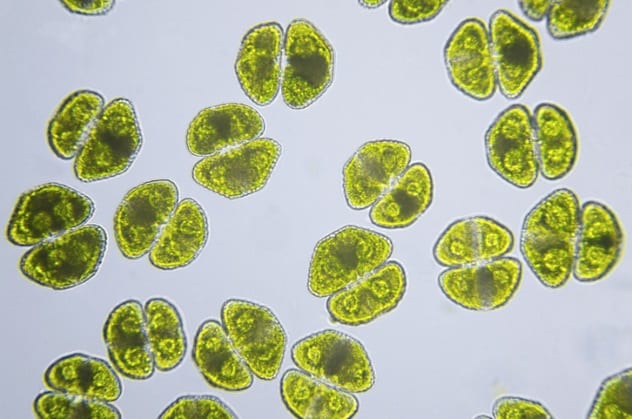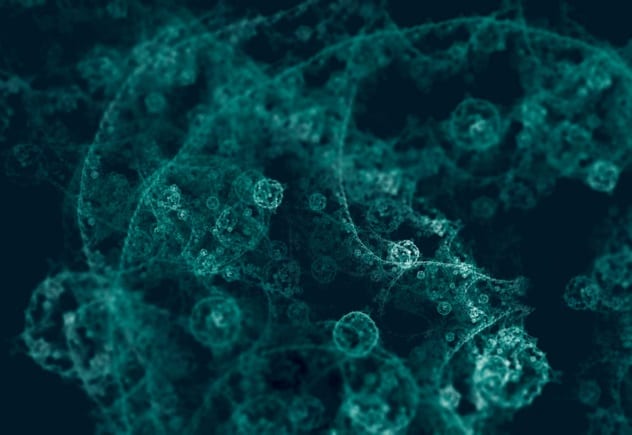 Humans
Humans  Humans
Humans  Gaming
Gaming 10 Overused Game Villains
 Mysteries
Mysteries Ten Mysterious “Ghost Ship” Stories That Still Keep Us Wondering
 Technology
Technology 10 Times AI Replaced Humans (and No One Noticed)
 Politics
Politics 10 Dreaded Despots Who Met Untimely Deaths
 Pop Culture
Pop Culture 10 Celebs Who Have Surprisingly Wanted to Be on Reality TV
 Creepy
Creepy 10 of the Strangest Popular Creepypastas
 Animals
Animals 10 Animals That Used to Be Bigger
 Our World
Our World 10 American Cities, Towns & Villages That Are Unlike Any Other
 Movies and TV
Movies and TV 10 Huge Movies Almost Made by Other Directors
 Humans
Humans 10 Real Life Versions of Famous Superheroes
 Gaming
Gaming 10 Overused Game Villains
 Mysteries
Mysteries Ten Mysterious “Ghost Ship” Stories That Still Keep Us Wondering
Who's Behind Listverse?

Jamie Frater
Head Editor
Jamie founded Listverse due to an insatiable desire to share fascinating, obscure, and bizarre facts. He has been a guest speaker on numerous national radio and television stations and is a five time published author.
More About Us Technology
Technology 10 Times AI Replaced Humans (and No One Noticed)
 Politics
Politics 10 Dreaded Despots Who Met Untimely Deaths
 Pop Culture
Pop Culture 10 Celebs Who Have Surprisingly Wanted to Be on Reality TV
 Creepy
Creepy 10 of the Strangest Popular Creepypastas
 Animals
Animals 10 Animals That Used to Be Bigger
 Our World
Our World 10 American Cities, Towns & Villages That Are Unlike Any Other
 Movies and TV
Movies and TV 10 Huge Movies Almost Made by Other Directors
10 Plausible Theories For Our Sexual Desires
Despite our differences in opinion and cultures, there’s one thing just about everyone can agree on: Sex is amazing. No matter how much we may enjoy it, though, it’s one of the most mysterious aspects of evolution. Scientists have been trying to answer why we have sex at all for quite some time now,[1] as from an evolutionary perspective, it doesn’t quite make sense.
Not only is sexual reproduction quite costly for the organisms, evolutionarily speaking, but we also don’t quite know for sure why we find so many things, like breasts, for example, sexually arousing, especially when other animals that also reproduce sexually aren’t like this.
Now, we’re not saying that we’re closer to figuring out the evolutionary reasons for sexual reproduction than qualified scientists, but we can certainly look into the various theories that try to do just that. Even if none of these definitively answer the question, they provide some interesting insights into this awesome yet mysterious feature of humanity.
10 Sex Could Have Helped Speed Up Evolution

A big reason why scientists are consistently scratching their heads over sex is that we don’t know for sure that it provides any benefits over asexual reproduction in evolutionary terms. Asexual reproduction is simple: You take an organism, divide it in two, and produce an offspring that is identical to the parent. There’s no risk for introducing new genetic disorders to your genetic line, and you don’t have to make the effort of finding a mate to reproduce.
According to one theory, the cost of sexual over asexual reproduction could well be offset by a boost in the speed of adaptation to new environments for sexual creatures. A study done on a type of single-celled green algae that reproduces sexually backs it up, too.[2] If not for sexual reproduction, the theory suggests, life would have taken a lot longer to develop the adaptation mechanics needed to adapt to new environments, so that’s another thing we have sex to thank for.
9 Sex May Have Evolved As A Response To Parasites

Humanity may have won the evolutionary war now, but that victory was a long time coming. It was a brutally competitive world out there, with many organisms fighting for the same resources in the same area. It wasn’t just huge predators, either; many life-forms were just as threatened by parasites. According to some scientists, sexual reproduction had a huge role to play in resisting them.
It’s known as the Red Queen Hypothesis, one of the various theories that try to explain why we reproduce sexually despite all its disadvantages. It suggests that as parasites tend to attack, and adapt to attacking, genetically similar organisms (like in the case of asexual reproduction), sexual reproduction would have helped keep offspring genetically unique and hence at a lower risk of a parasitic infection.
Researchers even carried out an experiment on a freshwater snail found in New Zealand which can reproduce sexually as well as asexually. They found that the part of the population that reproduced asexually had a much higher chance of being infected by a worm parasite than the others, suggesting that sexual reproduction evolved as a natural response to parasites.[3]
8 The Female Orgasm Could Be A By-Product Of Orgasms In Men

There’s no bigger mystery regarding sex than the female orgasm. Many men have trouble getting their female partners to it, and scientists cannot wrap their heads around why it exists at all. Unlike the male orgasm, the female orgasm doesn’t do anything for reproduction, as women have a whole different mechanism for producing eggs that’s not reliant on male performance in the bed. So, what gives?
According to one theory, the female orgasm serves absolutely no evolutionary purpose and is actually a by-product of orgasm in males developed early during gestation, when the fertilized egg goes through the same stages of development regardless of whether or not it ends up male.[4] There are plenty of other theories to explain the female orgasm, though this one stands out because we know of another feature that serves no purpose and only exists as a by-product of development in the other sex: male nipples.
7 Humans Aren’t Meant To Be Monogamous

Cheating in a relationship has probably existed for as long as relationships themselves. No matter how committed most couples are to each other, cases of one of them going out and sleeping with someone else are abundant, so much so that memes about it are a subculture of their own on social media. It’s less of an evolutionary mystery and more a social anomaly; we’ve been doing one-on-one relationships throughout our history, so we should have gotten used to them by now.
According to science, though, there’s a simple reason behind why we have such a hard time staying in long-term, committed relationships. It’s because we never evolved to be monogamous in the first place and were always meant to have multiple sexual partners. This isn’t to say that we should forsake monogamy, as a lot of our accomplishments have come from going against how we we’re designed, but remaining faithful to our partners definitely doesn’t come to us naturally.[5]
6 Oral Sex Could Help Avoid Miscarriages

Oral sex is a rather important part of foreplay in any sexual encounter, unless we’re talking about people who are just bad in bed. Many would argue that it’s not just a prelude to the final act but an intrinsic part of the act itself. All the same, if we look at oral sex from an evolutionary perspective, it doesn’t make sense. We don’t know why it causes arousal or why, in many cases, it can serve as a passable alternative to intercourse, which is what’s actually needed for reproduction.
According to studies, oral sex, at least when performed on men by women, may have developed as a way to have fewer miscarriages. One study found a definite link between swallowing sperm and a reduced risk of preeclampsia in women, a condition which certainly increases the risk of miscarriage.
A Dutch team of obstetricians looked into it further and found more links between oral sex and a lower risk of miscarriages. They think that it’s because when the female gut is exposed to male semen, the body is able to develop immunity toward antigens present in it.[6]
5 Foot Fetish May Safeguard Against STDs

Even if a lot of us may outright deny that it exists in public, foot fetish is perhaps one of the most common types of fetishes around. It’s more common than you’d think, and despite its obvious appeal for those who find feet attractive, science simply has no idea why it exists, evolutionarily speaking. The feet are easily the last thing someone trying to find a partner would flaunt, which rules out any reproductive merit it may have had in the past. Freud suggested that some people find feet sexually attractive because they kind of look like the penis, which is verifiably not true if you ask anyone who has both.
According to a more plausible theory, our fetish for feet may have developed as a response to widespread STDs. In a study, researchers looked at all the times the foot was sexualized in popular imagination in history.[7] They were surprised to find that all those times coincided with whenever there was an STD outbreak in that region, though the study was largely limited to Europe. In a way, it makes sense, as the feet may have emerged as a safer alternative to regular sex when it got too risky.
4 Women Have Permanently Enlarged Breasts Due To Bipedalism

The opinion on breasts worldwide is simple: Just about everyone loves them. They’re an important organ for arousal for both men and women during sex. It almost sounds like blasphemy to question their existence, but for the sake of knowledge and science, we have to: Why do breasts exist at all?
If you’d say all animals have them, that’s not really true. Take apes: The only time their breasts are enlarged is when they’re lactating, and as soon as that’s over, they go back to flat chests. Human females are the only ones who have permanently enlarged breasts, and science has been trying to figure out why for quite some time, with little success.
According to some scientists, though, the breasts developed as a natural response to humans standing up on their own two feet during evolution. You see, when we were on all fours, the breasts provided no attraction benefits for the females, and it was the back end that served as the most visible part of the female reproductive anatomy. When we stood up on our feet, we developed breasts as another way of attracting better mates for reproduction.[8]
3 Homosexuality May Have Survived Due To Society’s Opposition To It

Homosexuality is another mystery scientists have been trying to crack for some time now, as it flies against all the theories of evolution and sexual reproduction we currently have. We know that it’s genetic to an extent, and we know that gay people exist, even if they’re a minority of the general population. There has got to be some way that it’s being successfully passed down to subsequent generations. This is despite the obvious fact that homosexual sex cannot naturally yield children.
Well, according to one evolutionary biologist, society’s ostracizing of gay people throughout history may have had a big role to play in homosexuality surviving through the ages.[9] As it was less okay to come out in the earlier days, gay people were forced to enter straight marriages, which led them to having babies and helping the population to survive. And the statistics back it up; 37 percent of the LGBT community in the US has children, and around 60 percent of them are biological.
2 Female Moaning May Be A Call To Other Men In The Vicinity

Moaning during sex is a perfectly natural response, though you may have noticed that women tend to do so much more than men. Some may say that it’s because men don’t tend to show emotions unless it’s absolutely necessary, but even for men who do make sounds during sex, they’re generally nothing compared to the ladies. Moaning may seem like a response to sexual pleasure during the act, though evidence suggests that it has nothing to do with orgasm, as the sounds actually subside when women are close to climax.
According to some theories, it may be more of a social response than a sexual one. Studies suggest that there’s a specific reason why women moan so loudly during sex: It’s because they’re inviting other men to the party in case their current partner is unable to fertilize their eggs. They tested this hypothesis on baboons and found that the males listening to a couple having sex could learn a lot from the nature of the sound, like how likely the female is to be impregnated by the ongoing act.[10]
It may not apply to modern, mostly monogamous society, though it would have greatly helped our chances back when promiscuity encouraged the survival of the species.
1 Sex May Not Be About Reproduction At All

In the evolutionary biology circles, sex is considered to be one of the biggest anomalies, as we’ve mentioned above. If we go by the popular notion that it’s the best way for us to reproduce, it comes across as hugely disadvantageous for the species. If we didn’t have two sexes and just reproduced on our own, we could grow our species twice as fast. There’s also the question of males, as due to reproducing sexually, we also have to bear the cost of a gender that does comparatively next to nothing for reproduction (strictly evolutionarily speaking, of course).
According to one theory, we may just be looking at it the wrong way. Sex may not have anything to do with reproduction at all. Rather, it developed as a way to exchange and collect useful genes in the earliest stages of evolution. (We still don’t have a definitive idea on exactly when life started reproducing sexually.) The theory is called the libertine bubble theory, which argues that sexual reproduction originated at a time when we were nothing but “bubbles” in the primordial soup, with genetic information all over the place. These “bubbles” developed sex as a way to attach useful DNA information to each other to get the best of everything that was out there, and it just stuck over time.[11]
You can check out Himanshu’s stuff at Cracked and Screen Rant, get in touch with him for writing gigs, or just say hello to him on Twitter.
Read more sultry sex facts on 10 Things You Never Knew About The Biology Of Sex and 10 Psychological Perspectives On Sexual Fetishes.








